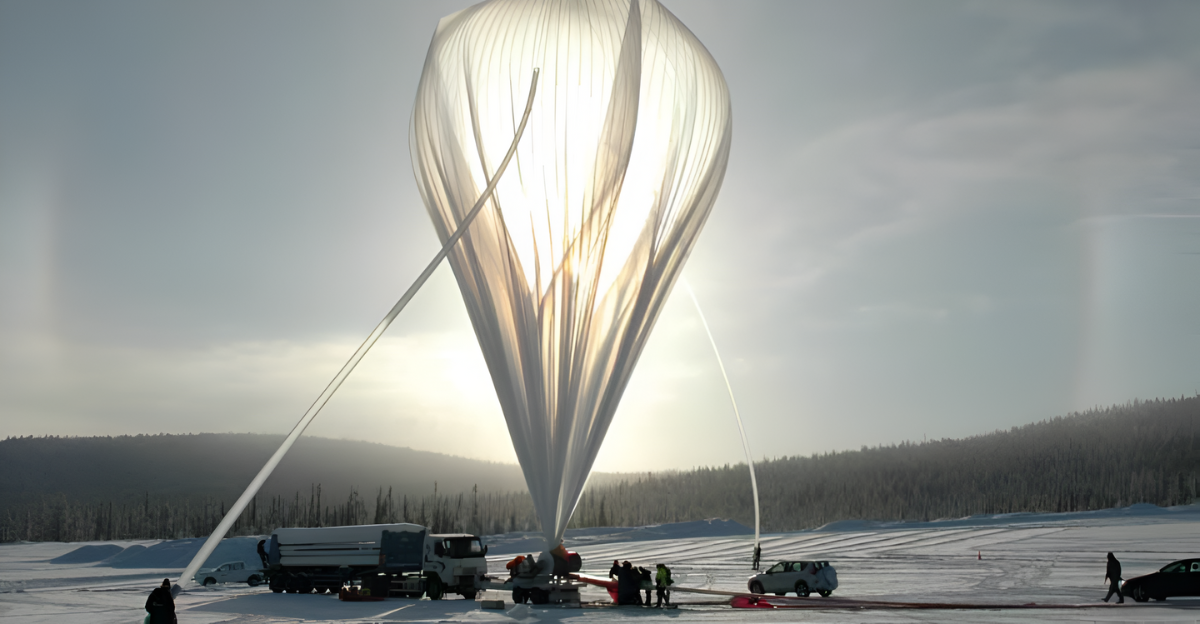
The UK government is about to spend fifty million pounds on experiments to try to mitigate global warming factors. The aim is to reflect some of the sun’s rays away from the Earth.
This innovative solution is called solar radiation modification or “SRM” for short. The experiments’ main goal is to try out new methods to mitigate the amount of sun the Earth receives like spraying small particles into the atmosphere or giving the clouds the ability to reflect more sunlight back into space.
These methods could lead to massive changes in global warming, potentially preventing more ice melt or coral reef destruction. The experiments are assured to be small and carefully controlled, and most importantly – reversible if needed. As global carbon emissions stay on the rise, SRM could buy us crucial time while nations look to sustainable energy.
Why Now?

Although experiments are only going to take place now, the notion of reflecting some of the sunlight we receive has been a topic of conversation within the scientific community for the last fifty years.
Inspirations for the idea are natural phenomena that cause global cooling, like extreme volcanic ash, releasing ash into the sky and blocking out the sun. Recent research includes both NASA and Harvard-led projects, which shows that reflected regions could be called by up to half a degree Celsius.
The UK aims to fund new experiments that will build upon previous research, but with strict controls and regulations, as well as cutting-edge technology. Many believe that we are at a point where we need to look at every available solution to slow down global warming.
Risk Factors

The notion of blocking out or reflecting sunlight is a cause for concern for many people, and for good reason. A healthy amount of speculation can ensure that projects are careful and don’t damage the ozone layer or have other adverse side effects.
The UK’s approach to this problem is to start with small, controlled experiments that can easily be reverted. This method is a lot like how new medicines are tested in phases.
Experiments won’t release anything that cannot be quickly reversed, and early research predicts that these methods could save millions from deadly heatwaves.
What About Farming?

Among the risk factors of these experiments is the potential effect that they could have on agriculture. Historical data suggest that global cooling can actually have a positive impact on plants, such as the 1991 Mount Pinatubo eruption event, which caused rice yields to go up because crops weren’t as stressed by the scorching heat.
Sugarcane harvests have been boosted in Australia during early experiments of brightening clouds. The UK is consulting experts in many fields, including farmers, to ensure that they cover all potential gaps in foresight.
SRM aims to mitigate global warming without impacting industries in a negative way.
Global Politics

Climate change isn’t going anywhere, and it’s a contentious issue that affects the whole planet. Global politics means that if one country tries to control the climate, it could cause international tension.
The UK plans to reduce the chance of these tensions by being open and transparent, sharing all of their findings so that other nations can see their process, what works, and what doesn’t.
This approach helps these technologies and techniques evolve faster, as anyone can use the research as a backdrop for their own findings. Global cooperation may be required in the future to help stop the Earth from heating so rapidly.
Potentially Investing In The Wrong Solutions

The UK’s investment of fifty million pounds into SRM could be seen as ignoring the broader issue and potentially investing in the wrong solutions.
If SRM can be successfully adopted in the future, companies may use it as an excuse to shirk off reducing their carbon pollution.
Scientists in the UK want the goal of SRM not to be a replacement for cleaner energy sources but to act as a buffer, buying more time while nations try to switch from gas and coal energy.
New Technologies Could Come From This

The important experiments of SRM are at the forefront of science and could aid in the development of new technologies. Oftentimes, new innovations in science can be applied in broader fields.
The sensors and drones that are being developed specifically for these experiments could help in a variety of other fields, such as medicine, agriculture, or perhaps even disaster response.
The Space Race led to inventions like MRI scanners and improved food storage, so these projects could have impacts on other scientific fields.
“Solar Tuning”

While many may be afraid or skeptical about the idea of “dimming” the sun, scientists prefer to call the method “solar tuning”.
Researchers want to be upfront about how their experiments will be extra cautious and only make the smallest adjustments, not completely blocking out the sun and causing another ice age.
Education is important to help the public understand the science behind the methods used and exactly how they are expected to affect their lives in the future. The UK is making steps towards making sure that the public is informed across every step.
A Proactive Approach

Many think that the experiments should be halted until researchers can better understand it and know that it is 100% percent safe.
This would be an ideal scenario. Unfortunately, with the rate of global warming, a proactive and somewhat radical approach may be needed.
Climate change has already done a lot of harm and waiting around could make things even more complicated. The UK is dedicated to remaining cautious and using a step-by-step approach to the experiments.
A Sustainable Future For Humanity

The UK’s funding of SRM experiments is acknowledging an important issue that many would prefer to ignore.
Global warming due to carbon emissions is accelerating faster than nations can switch to sustainable power.
Time is running out, and we need to find ways of buying enough time for these switch overs for that there is a sustainable future for humanity.
Explore more of our trending stories and hit Follow to keep them coming to your feed!

Don’t miss out on more stories like this! Hit the Follow button at the top of this article to stay updated with the latest news. Share your thoughts in the comments—we’d love to hear from you!







